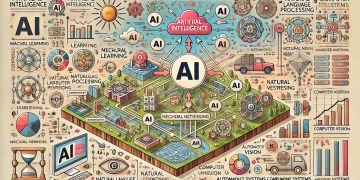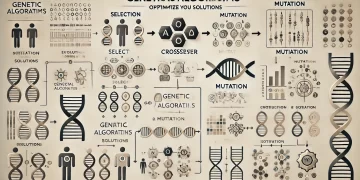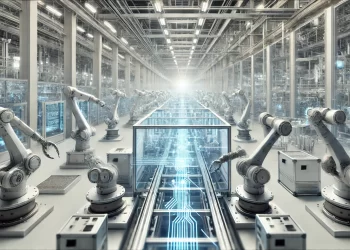Artificial Intelligence (AI) is revolutionizing the agriculture industry by improving efficiency, increasing productivity, and enabling sustainable farming practices. With the integration of AI-powered solutions, farmers can optimize crop management, monitor soil health, predict weather conditions, and automate farming operations. This article explores various AI use cases in agriculture, demonstrating how AI is shaping the future of farming.
1. AI-Powered Precision Farming
AI-driven precision farming enables farmers to monitor and manage crops with high accuracy. Machine learning algorithms analyze data from sensors, drones, and satellite imagery to assess soil conditions, detect pests, and determine optimal planting and irrigation schedules. AI ensures that resources such as water, fertilizers, and pesticides are used efficiently, reducing waste and increasing yields.
2. Smart Irrigation Systems
AI-powered irrigation systems use real-time weather data, soil moisture levels, and crop water requirements to optimize water usage. AI-driven solutions help reduce water consumption while maintaining healthy crop growth. Automated irrigation systems equipped with AI can adjust water distribution based on predictive analytics, ensuring sustainable water management.
3. AI in Pest and Disease Detection
AI enhances pest and disease detection through computer vision and deep learning algorithms. AI-powered image recognition tools analyze crop images to identify early signs of infestations and diseases. Farmers receive real-time alerts, allowing them to take preventive measures before the issue spreads, minimizing crop losses.
4. Autonomous Farming Equipment
AI-driven robotics and autonomous machinery are transforming traditional farming methods. Self-driving tractors, robotic harvesters, and automated weed control systems increase efficiency while reducing labor costs. AI-powered machinery improves precision and ensures optimal planting, harvesting, and soil management.
5. AI in Livestock Monitoring
AI-powered livestock monitoring systems track animal health, behavior, and productivity. Wearable sensors and AI-driven cameras collect data on feeding patterns, movement, and disease symptoms. AI analytics help farmers detect anomalies early, ensuring timely intervention and improved livestock management.
6. Predictive Analytics for Yield Forecasting
Machine learning models analyze historical data, weather conditions, and soil health metrics to predict crop yields. AI-driven forecasting tools enable farmers to make informed decisions about harvesting, storage, and market supply, helping them maximize profitability and reduce post-harvest losses.
7. AI in Supply Chain Optimization
AI enhances agricultural supply chains by predicting demand, optimizing inventory management, and reducing food waste. AI-powered analytics help farmers and distributors streamline logistics, ensuring that crops reach markets efficiently. AI also aids in price forecasting, allowing farmers to plan sales strategies effectively.
8. AI-Enabled Soil Health Monitoring
AI analyzes soil samples and satellite imagery to assess soil composition, fertility, and nutrient levels. AI-driven solutions provide recommendations on soil amendments and fertilizer applications, ensuring that crops receive the right nutrients for optimal growth. AI-based soil analysis improves sustainability by preventing soil degradation and overuse of chemicals.
9. AI for Climate-Smart Agriculture
AI helps farmers adapt to climate change by providing real-time weather forecasting and climate modeling. AI-driven climate analytics predict extreme weather events such as droughts and floods, enabling farmers to take proactive measures. AI also supports the development of climate-resilient crops through genetic analysis and breeding programs.
10. AI in Agricultural Finance and Risk Management
AI-powered risk assessment tools help farmers secure loans and insurance by analyzing farm data, market trends, and climate risks. AI-driven financial models assess creditworthiness and predict potential risks, making it easier for farmers to access funding and mitigate financial uncertainties.
Conclusion
AI is revolutionizing agriculture by improving efficiency, sustainability, and productivity. From precision farming to supply chain optimization, AI-powered solutions enable farmers to make data-driven decisions and enhance agricultural practices. As AI technology continues to advance, its integration into farming will play a crucial role in ensuring food security and environmental sustainability.
References
- McKinsey & Company. (2023). “AI and the Future of Agriculture.”
- World Economic Forum. (2022). “Precision Farming and AI-Powered Irrigation.”
- Deloitte Insights. (2023). “AI in Crop Monitoring and Disease Detection.”
- Harvard Business Review. (2023). “Autonomous Farming Equipment and Robotics.”
- Gartner. (2022). “AI-Driven Predictive Analytics in Agriculture.”
- PwC. (2023). “Sustainable Farming with AI-Enabled Solutions.”




































